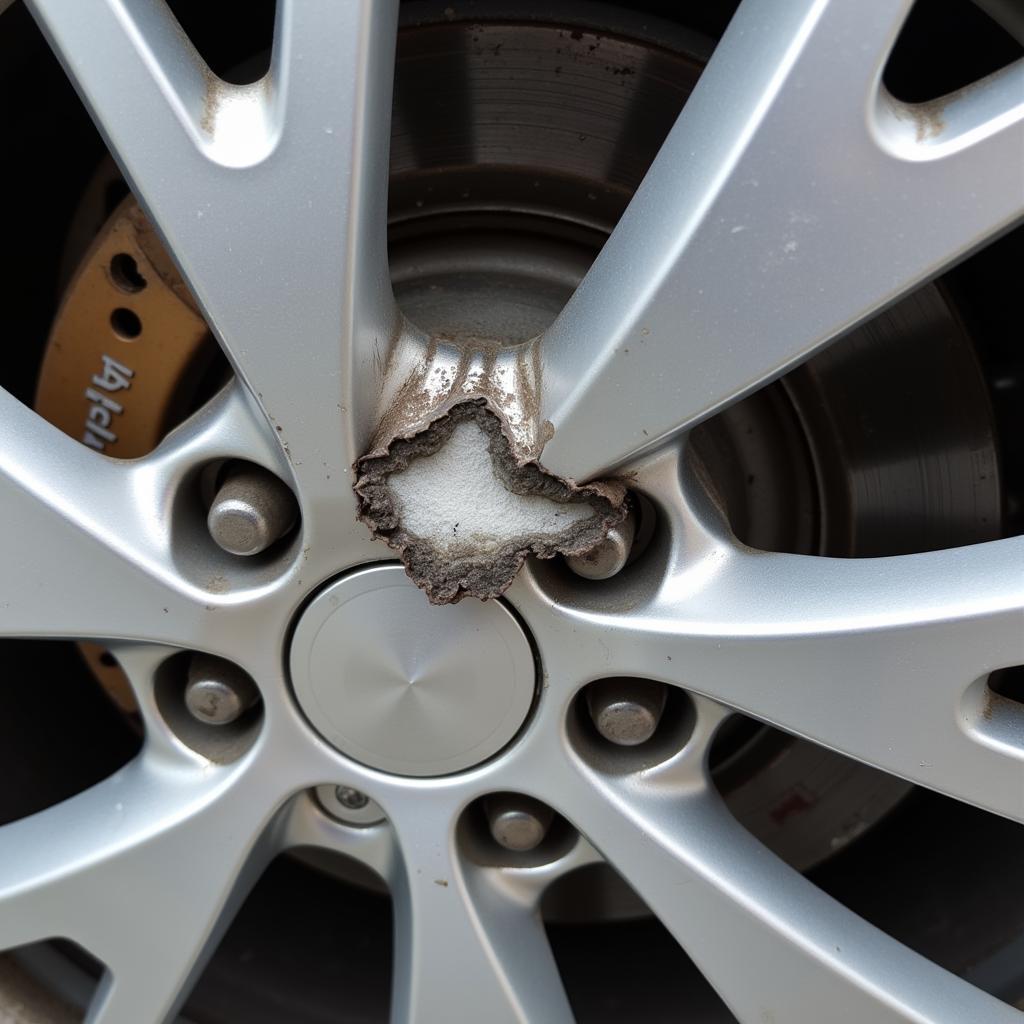Diagnosing Car Amp Problems can be frustrating, but with a systematic approach, you can pinpoint the issue and get your car audio system back on track. This guide provides a detailed walkthrough for troubleshooting car amplifier issues, whether you’re a car owner, a mechanic, or an automotive technician.
Understanding the Basics of Car Amplifiers
Before diving into diagnostics, understanding the basic components of a car amplifier system is crucial. The amplifier receives a low-level audio signal from your car stereo, boosts it, and sends the amplified signal to your speakers. Key components include the power supply (battery and fuse), ground connection, input signal wires, output speaker wires, and the amplifier itself. A problem with any of these components can lead to audio issues. For example, a loose ground connection can cause humming or static.
Common Car Amp Problems and Their Solutions
No Power to the Amplifier
One of the most common car amp problems is a lack of power. This could be due to a blown fuse, a faulty power wire, or a bad connection at the battery.
- Check the fuse: Locate the fuse for the amplifier (usually near the battery) and inspect it for any breaks. Replace the fuse if necessary.
- Inspect the power wire: Trace the power wire from the amplifier to the battery, looking for any cuts, breaks, or loose connections. Repair or replace the wire if needed.
- Verify battery connection: Ensure the power wire is securely connected to the battery terminal.
Amplifier Turns On But No Sound
If your amp powers on but there’s no sound, the problem could lie in the input signal, speaker wires, or the amplifier itself.
- Check the input signal: Use a test tone generator or another known good audio source to ensure the amplifier is receiving a signal.
- Inspect the speaker wires: Trace the speaker wires from the amplifier to the speakers, looking for any damage or loose connections.
- Test the speakers: Connect the speakers directly to the head unit to rule out speaker issues. If the speakers work with the head unit, the problem is likely with the amplifier. Sometimes, internal components of the amplifier can fail, requiring repair or replacement.
Distorted Sound
Distorted sound can be caused by several factors, including a poor ground connection, incorrect gain settings, or a faulty amplifier.
- Check the ground connection: Ensure the ground wire is securely connected to a clean, unpainted metal surface on the car chassis. A poor ground can cause humming, buzzing, or distorted audio.
- Adjust the gain: Incorrect gain settings can lead to clipping and distortion. Consult your amplifier’s manual for proper gain adjustment procedures.
- Consider a failing amplifier: If other troubleshooting steps don’t resolve the distortion, the amplifier itself may be faulty.
“A solid ground connection is vital for a clean audio signal,” says Robert Johnson, Lead Automotive Electrical Engineer at Apex Automotive Solutions. “Don’t underestimate the importance of a proper ground.”
Diagnosing with a Multimeter
A multimeter is an invaluable tool for diagnosing car amp problems. It allows you to test voltage, continuity, and resistance. You can use it to verify power and ground connections, check speaker wire continuity, and diagnose internal amplifier issues.
“A multimeter can quickly pinpoint the source of many car audio problems,” adds Maria Sanchez, Senior Automotive Technician at Apex Automotive Solutions. “It’s a must-have for any serious car audio enthusiast.”
Having problems with a wiggle in your car? Check out our article on wiggle car problem. Or maybe your car’s acceleration is giving you trouble? We’ve got you covered with our guide on troubleshooting car problems acceleration.
When to Seek Professional Help
While many car amp problems can be diagnosed and fixed at home, some issues require professional expertise. If you’re uncomfortable working with car electronics or you’ve exhausted all troubleshooting steps, it’s best to consult a qualified car audio technician.
If you suspect problems with your car’s PCM, read more on pcm car problem. Additionally, issues with your car’s suspension system, such as springs and dampers, can also indirectly affect your car audio experience, so checking our article on car and road spring and damper problem might be helpful.
Conclusion
Diagnosing car amp problems requires a systematic approach and a basic understanding of car audio systems. By following the steps outlined in this guide, you can effectively troubleshoot common issues and restore your car’s sound system. Remember, diagnosing car amp problems sometimes requires patience and persistence. Don’t hesitate to contact us at AutoTipPro for further assistance. You can reach us at +1 (641) 206-8880 or visit our office at 500 N St Mary’s St, San Antonio, TX 78205, United States. We are always happy to help! For electrical issues specific to Wisconsin Rapids, WI, see our resource: wisconsin rapids wi electrical problems car.





Leave a Reply